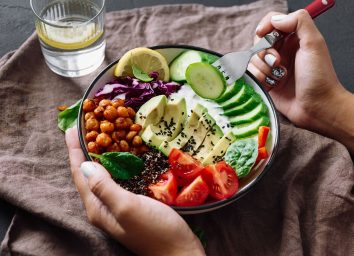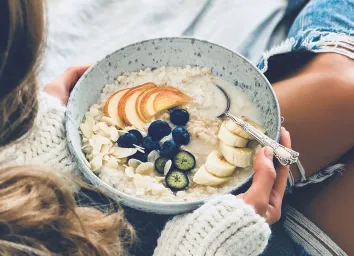The Best Foods Women Should Always Eat For Breakfast
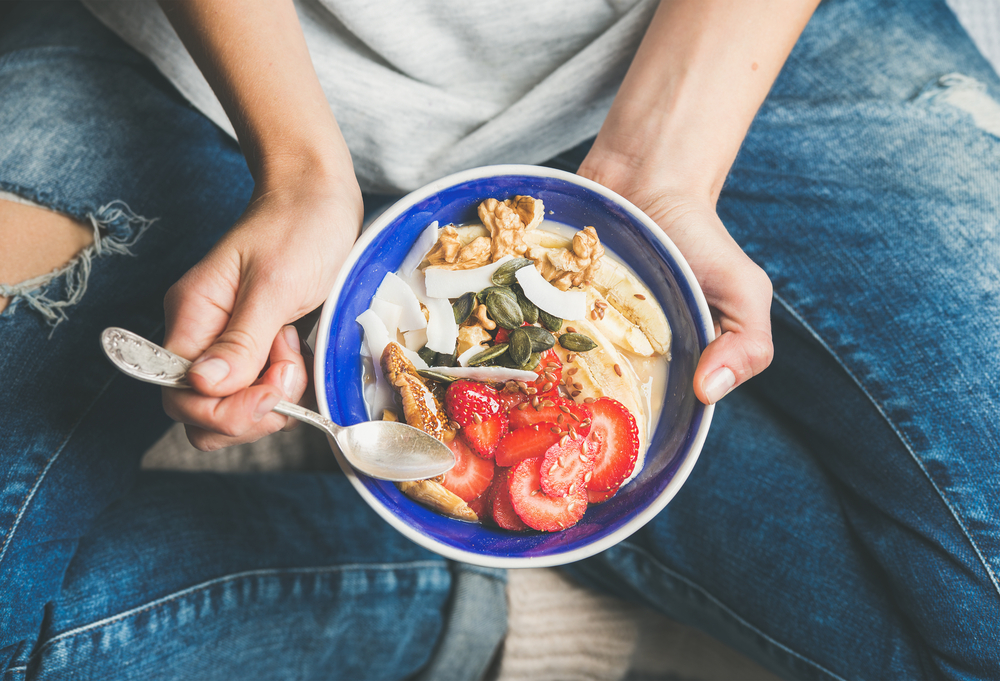
By now, you're fully aware the power that breakfast can have. It's the meal that gets you started for the day, and with the right nutrients, can help boost cognitive thinking, wake up the body, and keep your mood settled as you sit down to begin your list of to-do's for the day. So, it's important to make sure you save time in the morning, knowing exactly how to get the fuel you need—without going empty or resorting to a sugary donut from your local coffee shop.
And there are certain nutrients that are best for women in particular, too, so eating foods that contain them for breakfast can help make your day energized, enjoyable, and productive. Here are the 10 best foods women should include in their breakfast, according to dietitians.
Oats
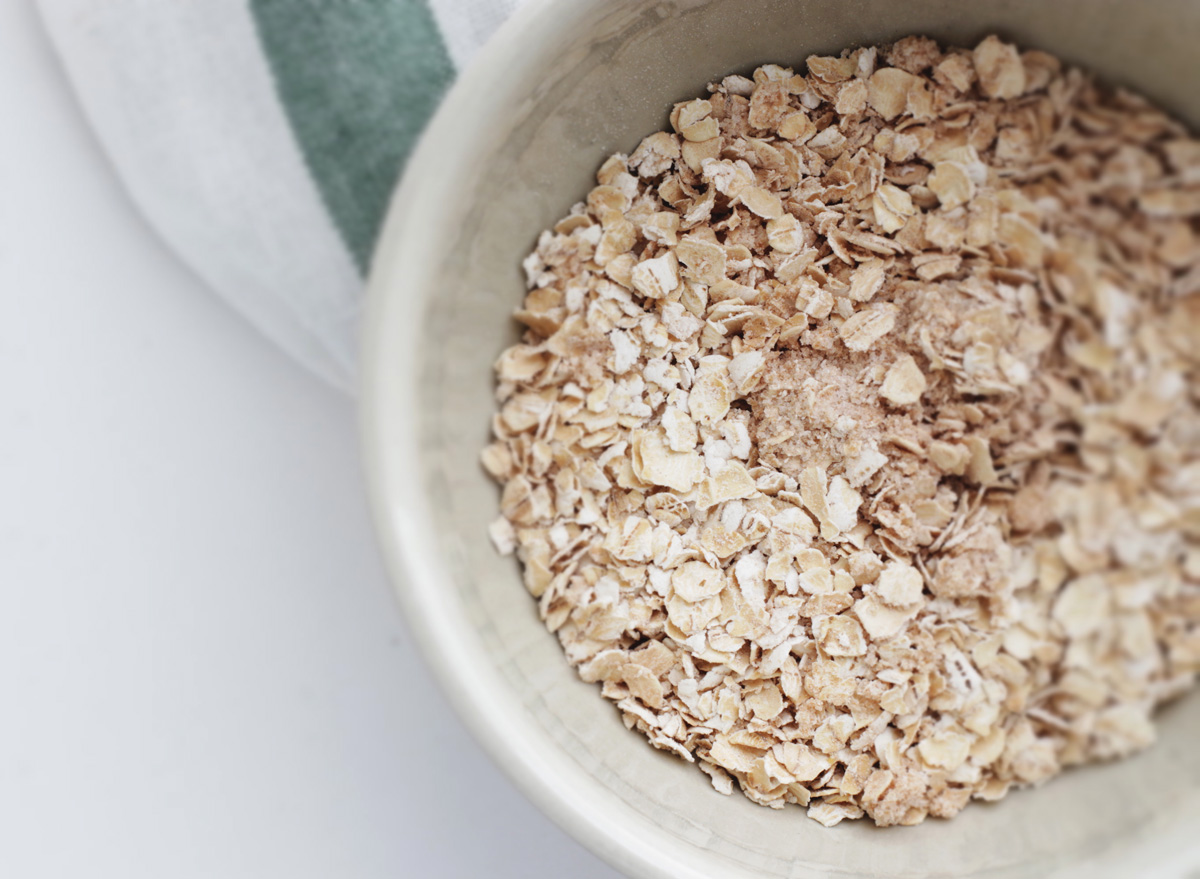
"Oats are an excellent start to your morning providing 5 grams of fiber and 5 grams of protein per half cup serving, which aid in fullness and satiety," says Kelly Jones MS, RD, CSSD, LDN. "On top of offering several B vitamins, they're also a good source of magnesium, phosphorus and selenium, and they offer 10% of the recommended daily value of iron, an important nutrient for women since females of childbearing age are at risk of iron deficiency anemia," she says. And if you're looking for some recipe help, check out these 50 Healthy Overnight Oats Recipes for Weight Loss.
Eggs
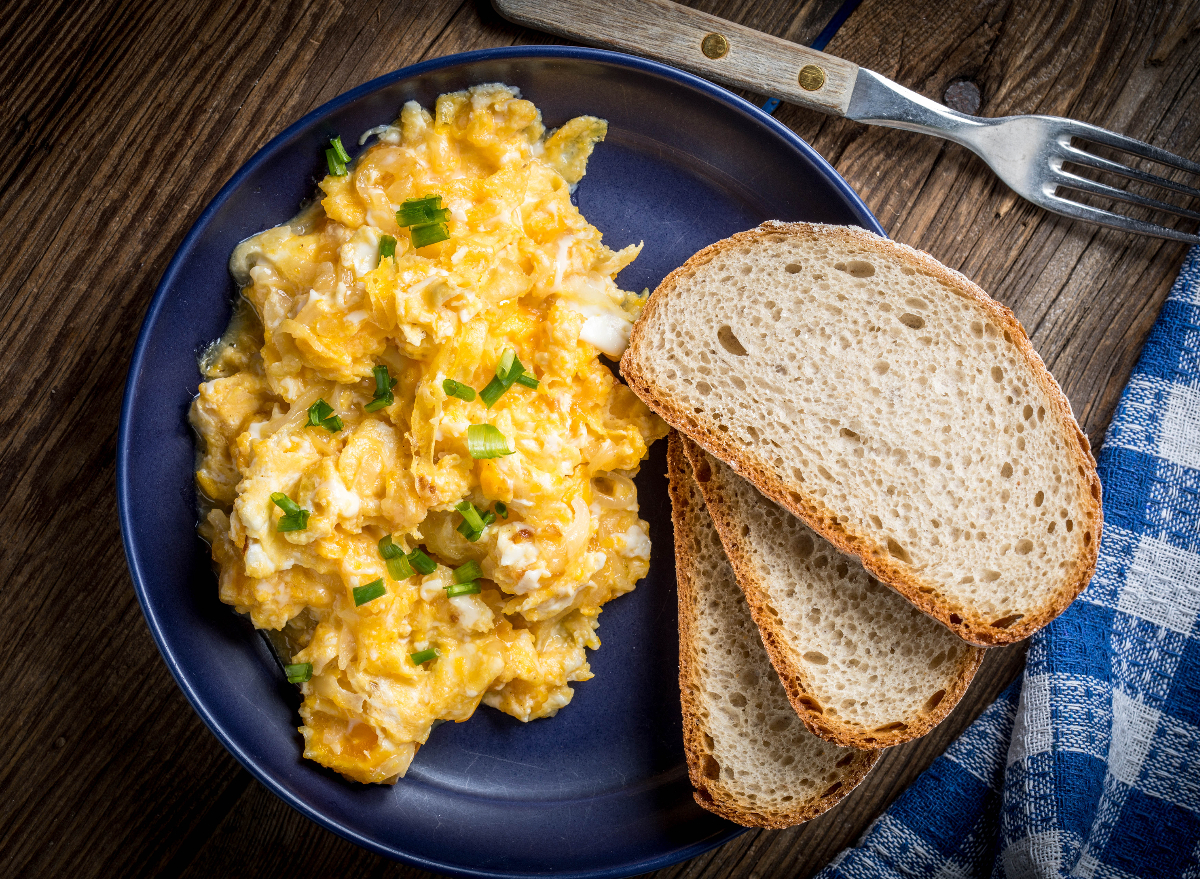
Eggs are a nutrient powerhouse providing not only high quality protein, but also 13 other essential nutrients. The key though, is that you want to eat the yolk, as it contains choline to promote cognitive thinking. "While the whites contain selenium and riboflavin, the yolks are where you'll find vitamin D, as well as choline, lutein, and zeaxanthin," says Jones. "Choline is important for functioning of all cells, but is particularly important for women who are pregnant and nursing," she adds.
Avocados
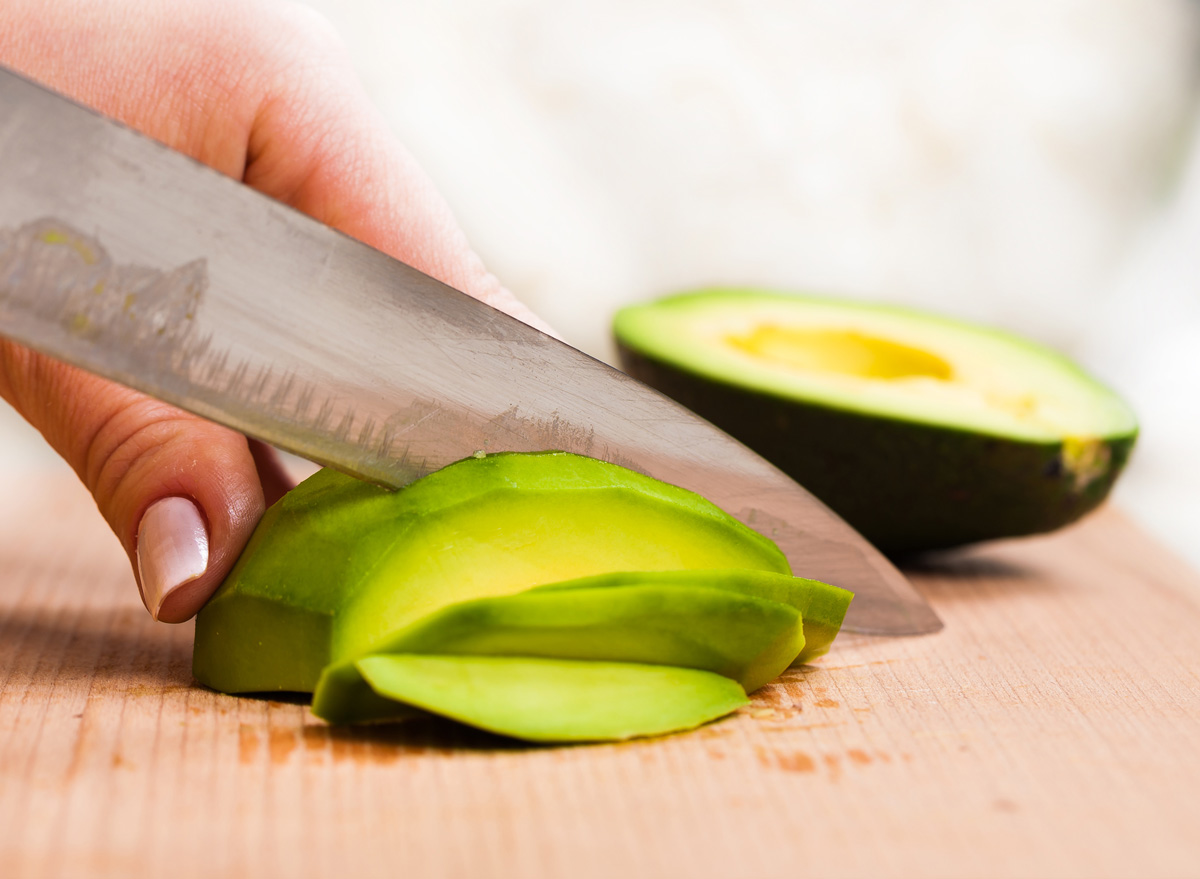
Go crazy on that avocado toast trend, since this green fruit is a great breakfast option. "Avocados are an excellent choice to pair with your breakfast since they provide heart healthy mono- and poly-unsaturated fats as well as fiber," says Jones. Plus, avocado intake may be helpful for those with or at risk for heart disease, which many don't know is the number one cause of death for American women, she adds.
Blueberries

Add blueberries for a pop of color and nutrition.
"A one cup serving is a good source of fiber and vitamin C, while also providing other nutrients and phytochemical polyphenols," says Jones. Plus, they may promote cardiovascular health. "Frozen blueberries are a nutritious, convenient and cost effective option, too, and help ensure you always have them on hand to add to a smoothie or oatmeal bowl in the morning."
Cultured Probiotic Yogurt
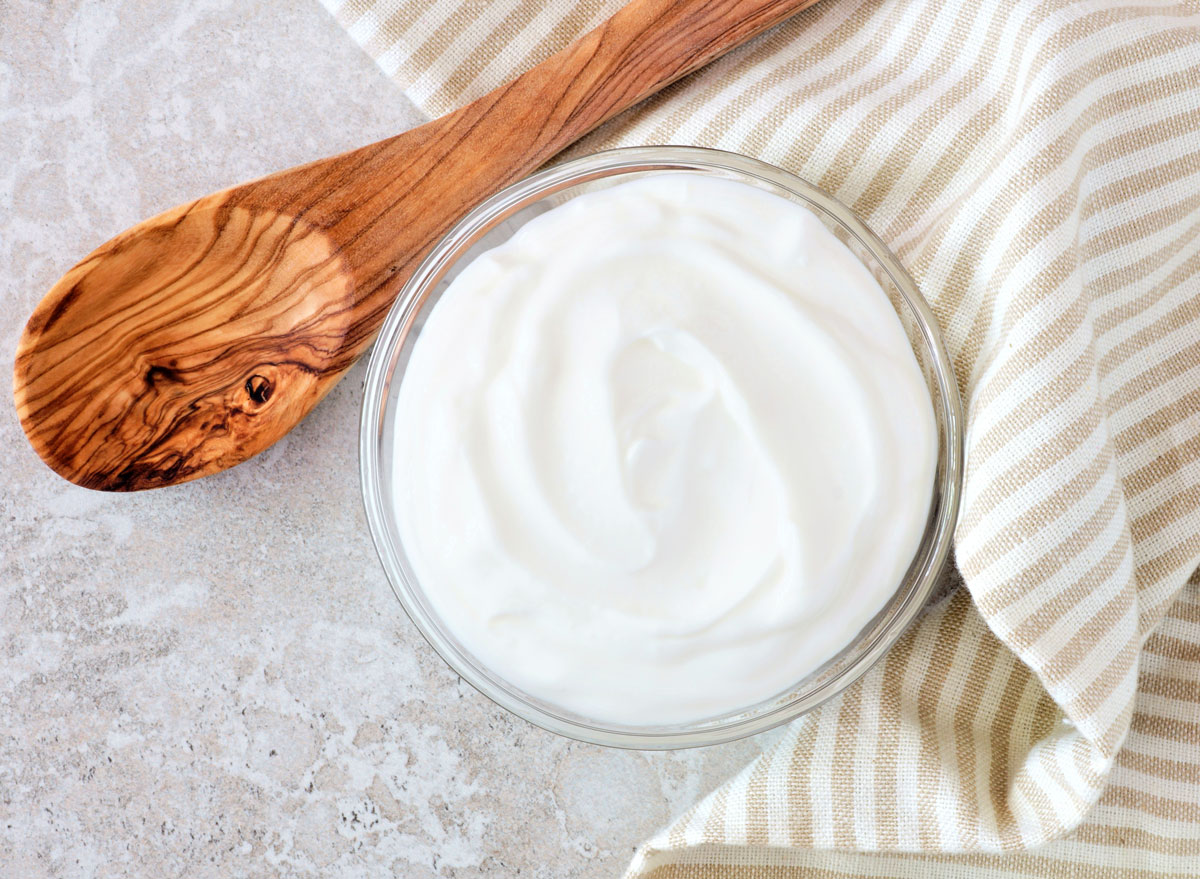
"Cultured probiotic yogurt is a great morning option to support your microbiome and get some calcium and protein, but if you're choosing a non-dairy cultured option, be sure to check the nutrition facts panel to ensure you're getting at least 5 grams of protein and be mindful of the added sugar," says Jones. Research shows a favorable balance of gut bacteria may be helpful in preventing yeast infections, as well, she explains.
Unsweetened-Plant Based Milk
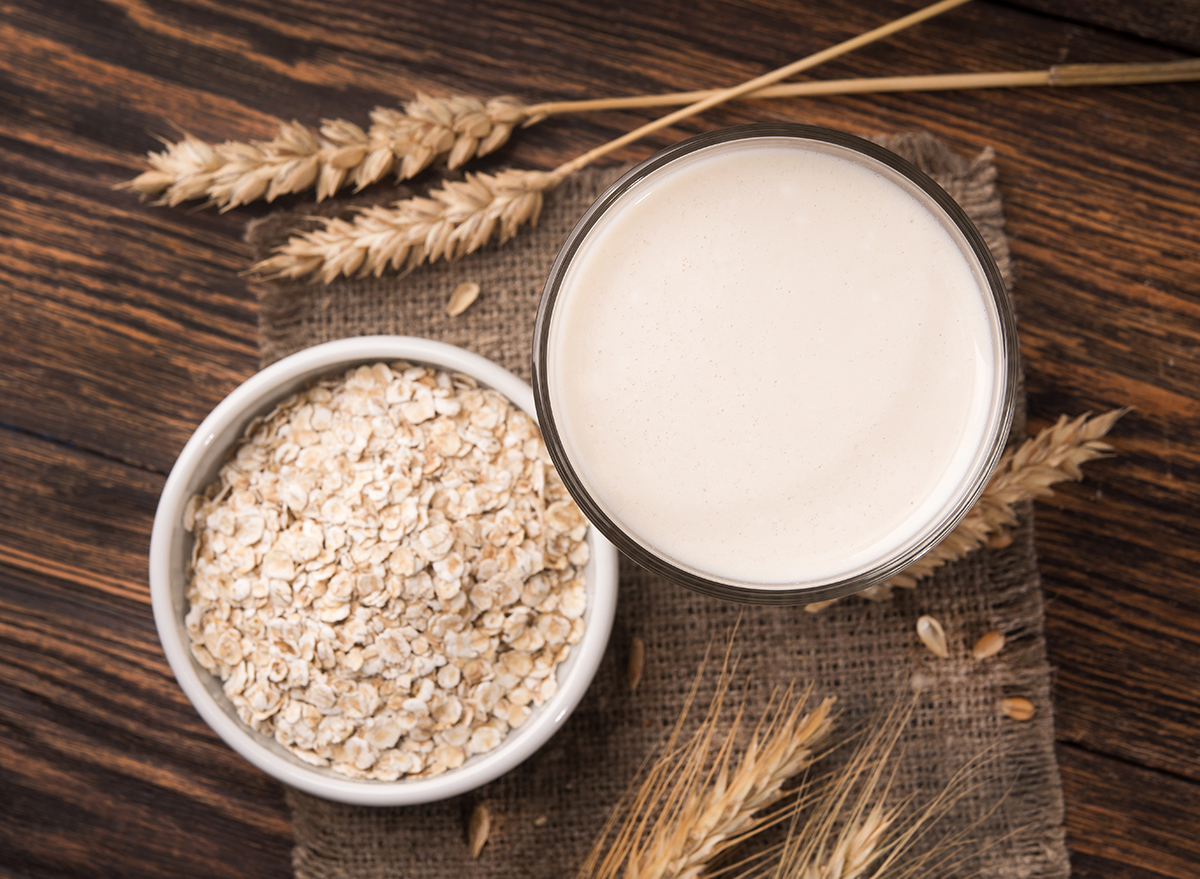
"Women aged 19 to 50 should aim for 1,000 mg (milligrams) of calcium every day and if you are age 51 or older, try for 1,200 mg, and calcium fortified plant based milks like almond, soy, cashew, coconut or oat milk are usually fortified with calcium and can contain 35-50% of the recommended daily intake," says Lauren Harris-Pincus, MS, RDN, and author of The Protein-Packed Breakfast Club. Just make sure to read the label, as organic varieties of plant-based milks are often unfortified. "I prefer the unsweetened versions so you can control how much sweetness you add to your diet," she says.
Prunes
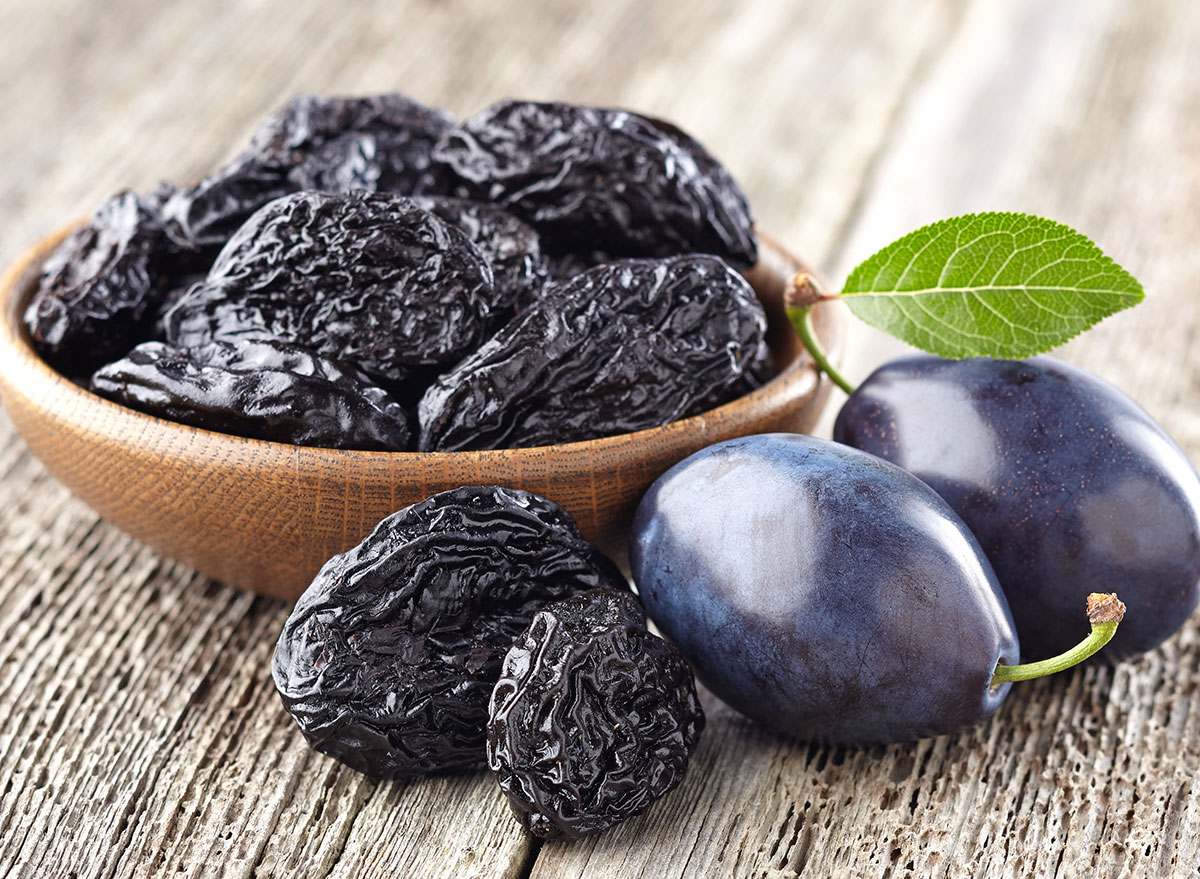
Some of us need help keeping things moving, and prunes can definitely do that!
"A 100 calorie serving (about 5 prunes) has 3 grams of fiber and sorbitol, which is a sugar that increases the water content of your poop to help you pass it more easily," says Harris-Pincus. "Plus, they contain potassium, magnesium, vitamin K and polyphenols which promote bone health," she adds. This is a great bonus, as bone density can decrease with age ,putting women at risk for osteoporosis, too.
Chia or Flax Seeds
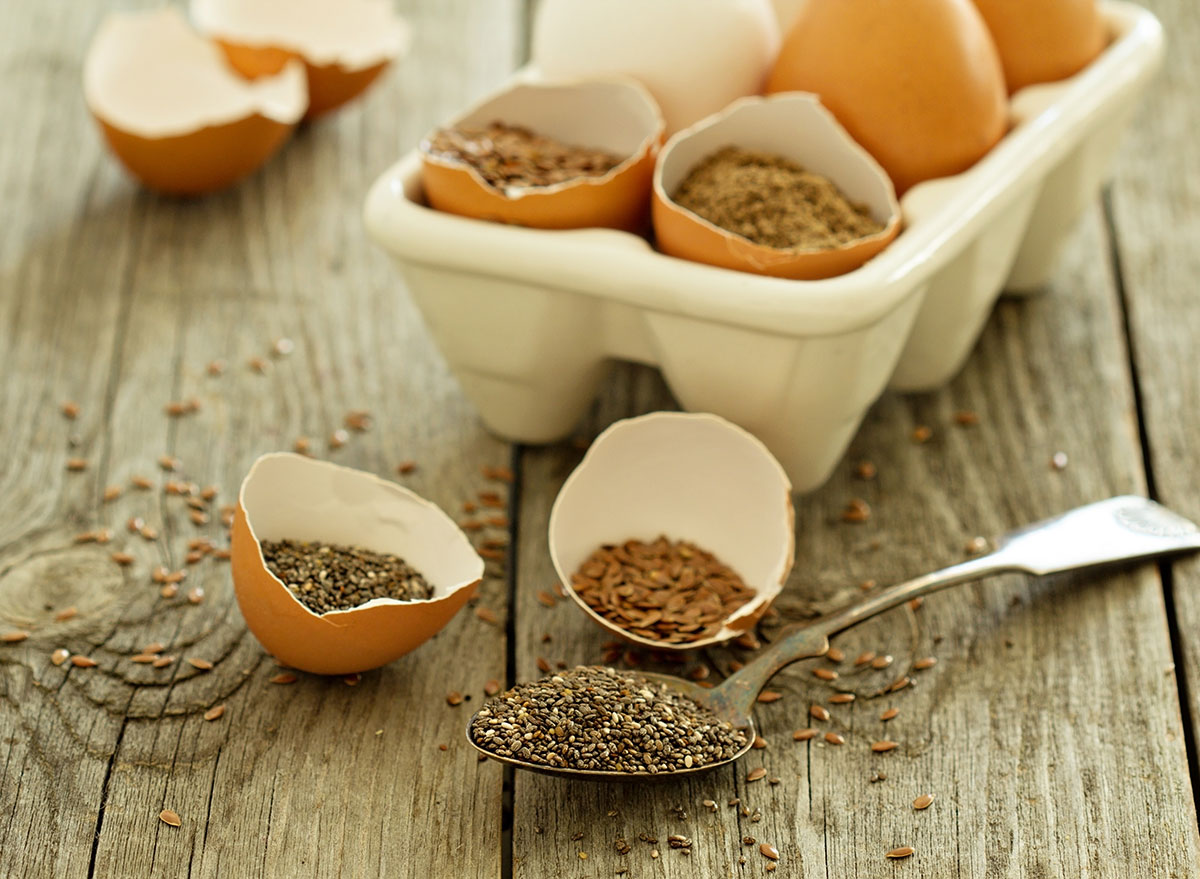
These seeds are full of healthy fats to reduce inflammation in the body and protect against disease.
"Chia or flaxseeds are a filling source of fiber and plant based omega 3 fats, two things we often lack in our diets," says Harris-Pincus. Stir some into yogurt, oatmeal or smoothies. In fact, this 7-day smoothie diet will help you shed those last few pounds!
Canned Fish
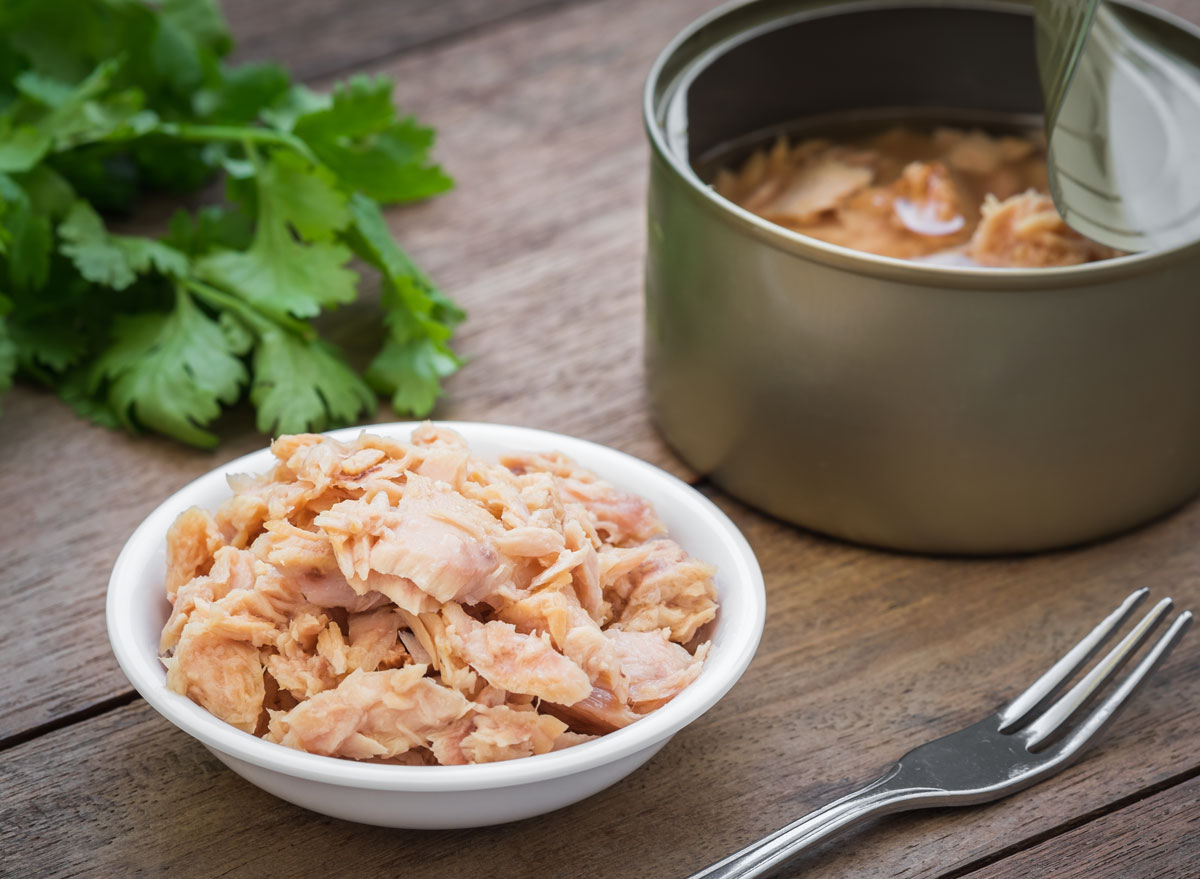
You can definitely eat salmon in your eggs or open up a can of tuna or salmon in the A.M.
"It's recommended that we eat seafood two times per week and only about 10-20% of Americans achieve that goal," says Harris-Pincus. Why not include some at breakfast as another easy, affordable and convenient protein source? Add canned salmon, tuna, or sardines to your avocado toast.
Cottage Cheese
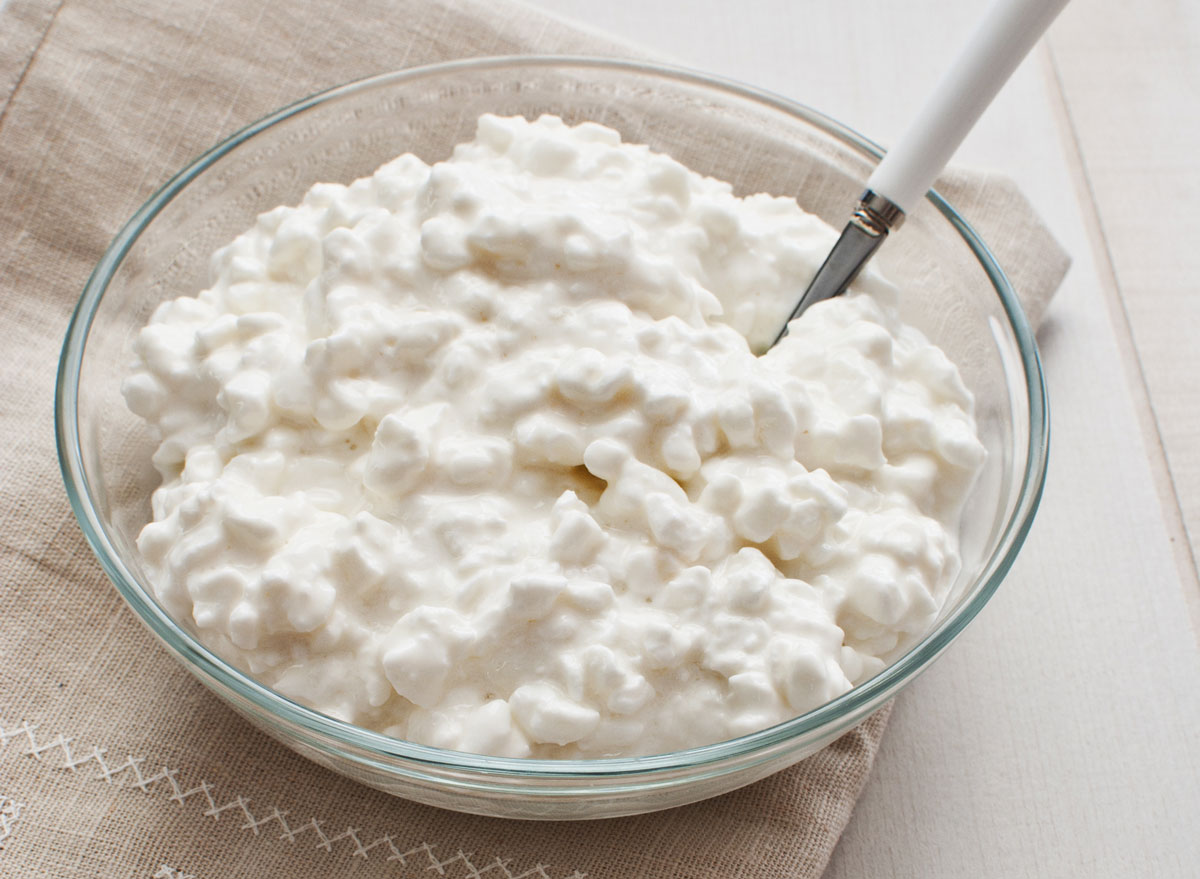
"Most people have strong opinions about cottage cheese but if you love it, you benefit from an easy, convenient protein source at breakfast with anywhere from 10-16 grams per 1/2 cup," says Harris-Pincus. Plus, the high calcium content is great for women's bone density too. Enjoy it with berries, nuts and seeds for extra fiber, and if you dare, blend it into a smoothie for a creamy texture.

